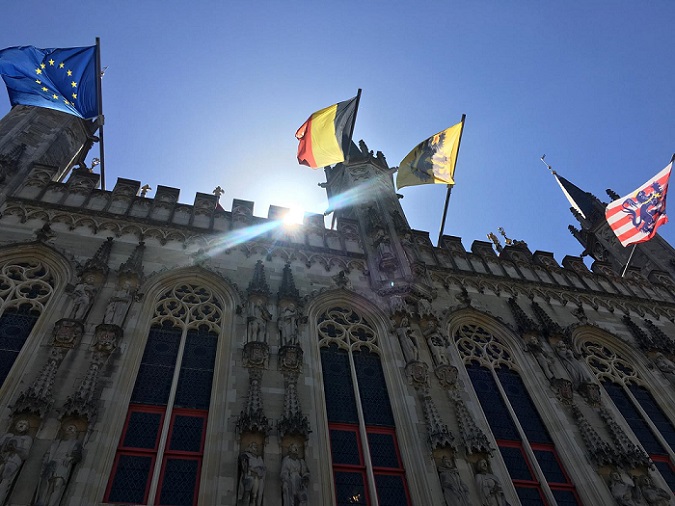Perhaps one of the greatest misconceptions I had about interning for a company in Belgium was the amount of free-time I would have. Three months spent in Brussels, working with people from all over the world, meant that I was constantly surrounded by new languages and exciting cultural differences. It was completely different from the normal feeling of being a tourist. I was learning what the daily life of a Belgian citizen was like, memorising commuter behaviour and being invited to coworkers’ actual homes. I felt like I had truly been immersed in the experience, but I soon realised that the problem with having a non-tourist adventure was that I wasn’t doing any tourist things. I was living abroad in a different city that I didn’t even have the time to explore.
The multitude of famous museums, monuments and parks, which would’ve only taken me a few days to see on vacation, I had barely even visited even though I’d been in the country for months. My knowledge of Brussels didn’t expand much outside the map of my route to work and a few additional Metro stops. Working 40 hours a week often left me tired by the end of the day and looking forward to naps rather than walking tours and crowded tourist areas. Plus, many of the museums that I wanted to see were closed by the time I left my office.

After weeks of this routine, I realised that I had to start making the most out of interning abroad, but that it would require planning and strict management of my time. Outside of work, it would take self-discipline in order to ensure that I was really learning and seeing the country I was living in.
When I had finally realised this, I only had a few weeks left in my internship and didn’t have the time to book more than a few weeks ahead. By then, the prices for flights weren’t as cheap as I wanted and I didn’t have many options. Luckily, I could suffer on a few cheap, overnight bus rides. But sleeping upright isn’t for everyone and definitely wasn’t my favourite mode of transportation by any means.
I also realised I had to accept the fact that I would be tired when I got home from work no matter how much, or little, sleep I had gotten the night before. I didn’t want to bully myself for wanting to relax after coming home on the weekday. So, I chose to make the long museum trips, park picnics, and monument visits full, non-stop days on the weekends. That way, I could still rest and take care of myself without feeling guilty about it during the week.
If there is one major thing I can tell someone to take away from my experience, it’s to plan where you want to go before you leave for your internship. Decide where you want to fly to and what destinations you could just catch a train, or bus for. Pick specific weekends for certain locations and determine how much time you want to spend there. This will give you and your internship time to approve an additional Friday, or Monday off. It’s also important to ask if there are any company holidays happening while you are there. During my internship, I had two three-day weekends and I wished that I had known beforehand so that I could’ve planned better trips.
In some cases, like when it comes to purchasing train tickets, it can be cheaper to buy them right at the station. But with flights in and around Europe, the farther out you can schedule them gives you more time to find fluctuation with prices. As far as airplane tickets go, even the days of the week and the time at which you’re purchasing a ticket can have an effect on the price! Write a list of the countries that you want to visit for the weekend before you leave. You may not yet know how many hours a week you’ll be working, but by planning weekend travel you’re guaranteed to still have after work adventures. And with a little foresight and planning before you leave, you’d be surprised at how many locations you’re able to visit during your internship abroad.



